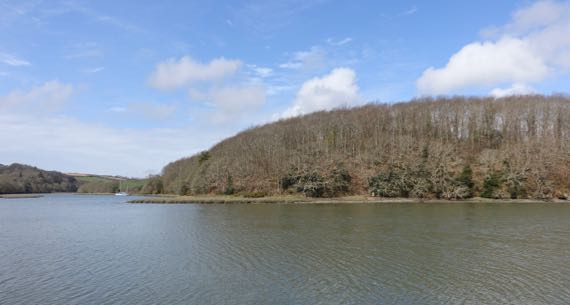
As we drove along this small estuary, we decided to stop and behold it…get a bit more closeup, at a well-placed pull-off. And to set foot in Cornwall for the first time on this trip. We parked, and as we began strolling down to the waterfront area, I saw Army Men. Real, not an art installation in the shrubbery.
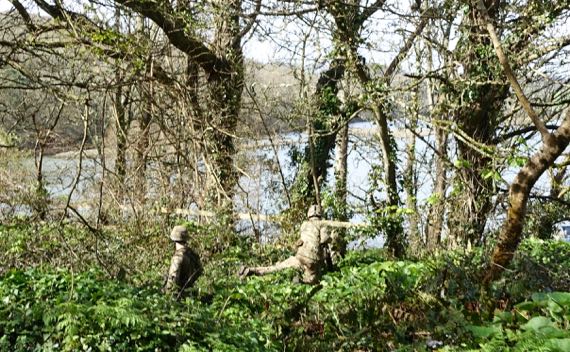
Three guys, in camo, with helmets and guns (pretty sure) and daubs of drab on their faces. Right in the vista-view pullout.
We spoke the more casual but still uniformed guys down by the water (no helmets or face-paint), and they said, training exercise. While we were in the general area, we saw two large helicopters also. Maneuvers, is that the term?
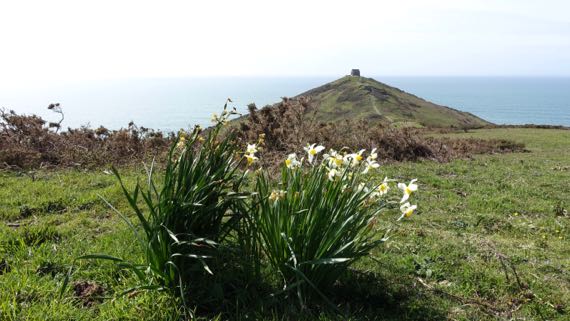
We made our way to Rame Head, one of many end-of-the-road peninsulas. Windy and sunny. On the high ground behind me is an installation now used by volunteers to monitor activities on the coast, and especially radio traffic for SOSs. I assume many are retired military. They had a telescope and binocs. Couldn’t see the radios.
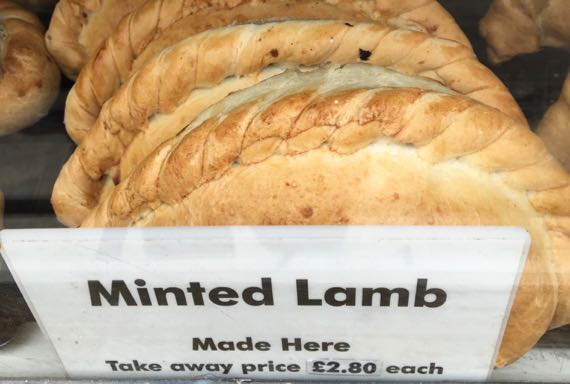
We stopped in Polkerro for a stroll about town. The Pol- part means pool. We had crossed the Tamar River into Cornwall before the Army Men, and Polkerro is a tourist stop rather than much of a fishing village any more, so many shops had Cornish this and that. On our way out, we succumbed and got hot pasties to go; I had chicken and leek. Yum.
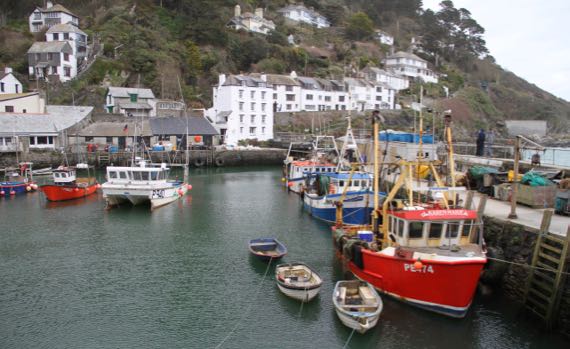
Polkerro harbor. Mighty rusty, the pulleys and whatnot on those fishing boats to the right.
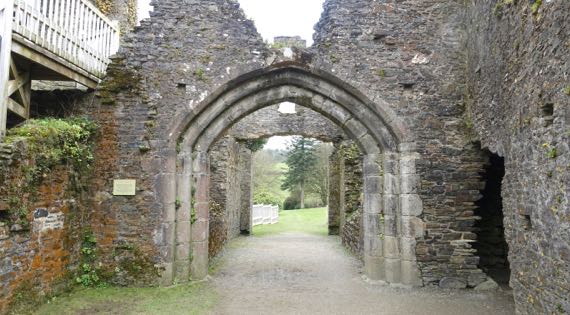
Our daily castle: Restormel. Near the once-stannary town of Lostwithiel. I mention this because stannary is a new vocab word for me—means that the community was a center for monitoring the production of tin, so the royals could get their cut, I assume, and also possibly for minting coins.
This the gate looking out—two gates originally. The second shows the inside of the castle, same direction, from the upper walkway.
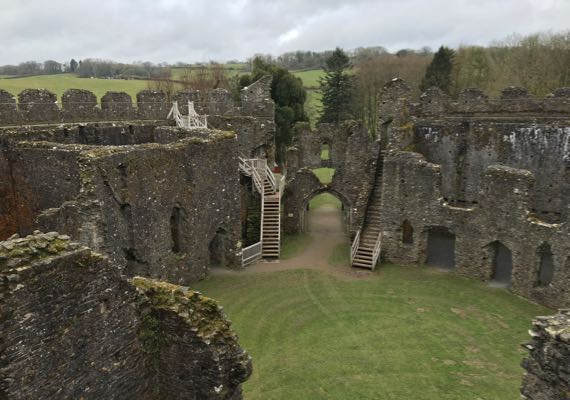
This is the administrative heart of the Duchy of Cornwall, and we all know who the Duke is, roight?